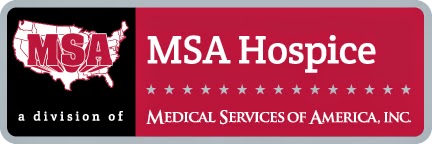All adults can benefit from thinking about what their healthcare choices would be if they are unable to speak for themselves. These decisions can be written down in an advance directive so that others know what they are.
Advance directives come in two main forms:
- A "healthcare power of attorney" (or "proxy" or "agent" or "surrogate") documents the person you select to be your voice for your healthcare decisions if you cannot speak for yourself. You may authorize another person, such as a spouse, child, or friend, to be your “agent”. Thus, in the event that you become incapable of making informed healthcare decisions for yourself this person will step in and make the decision on your behalf. You can also specifically tell your agent what kinds of care you do and do not want. This authorization is, in legal terms binding that person to carry out your explicit directives without legal confrontation from other parties.
- A "living will" documents what kinds of medical treatments you would or would not want at the end of life. Many people would opt to complete both types of advance directives and therefore ensure that their healthcare decisions are solidified legally.
Where do I get an ‘Advance Directive’ form?
AARP: End-of-life-planning
Advance Care Planning Day Initiative: Advance Care Planning
Learn! There are many medical procedures that can be offered at the end of life. Some may improve your quality of life, others may only prolong life. Different people have different thoughts about these procedures.
Choose your Substitute Decision Maker. Choose someone who would honor and follow your wishes, and is able to speak for you if you can't speak for yourself.

Continue the conversation!
 Frequently Asked Questions
Frequently Asked Questions
Can my plans change?
You can change your plans as often as you like. Just make sure that the person representing you understands your wishes and has a copy of your most recent written document.
Doesn't my doctor have the final say about my care?
Your doctor can provide valuable advice to you and your family about treatment, but needs to know about your beliefs, concerns and wishes to provide you with the care you want to receive at the end of life. Everyone has the right to make decisions about their own health care.
Volunteering in hospice is a choice that creates rewards for patients and families. The ultimate surprise is the growth a volunteer develops from learning more about themselves with every visit to their patient. You learn to communicate in ways that increase your own appreciation of life. Your views of daily situations take on a holistic perspective. Nothing will ever be the same in your personal or professional life if you are correctly trained as a hospice volunteer.
- Must be 18 or over to volunteer.
- Weekend and evening hours are available.
- Maximum requirement is two to four hour per week.
- Locations will vary.
We are actively growing our hospice volunteer program and we would like you to know that if you have a desire to become involving in making a difference in the lives of the dying we will give you that opportunity! Medi Hospice is located in Fredericksburg & Manassas, Virginia. We have a Volunteer Coordinator who will meet and discuss with you our volunteer opportunities. Should you desire to join our team call during normal business hours and ask for the Volunteer Coordinator.
(540) 361-7696 Fredericksburg
(703) 392-7100 Manassas



No comments:
Post a Comment